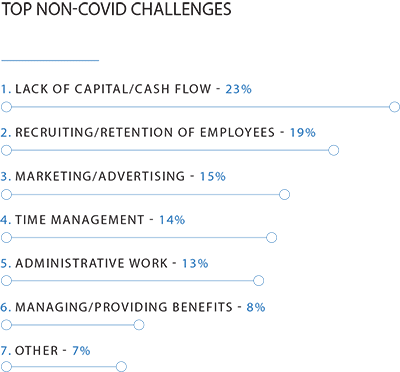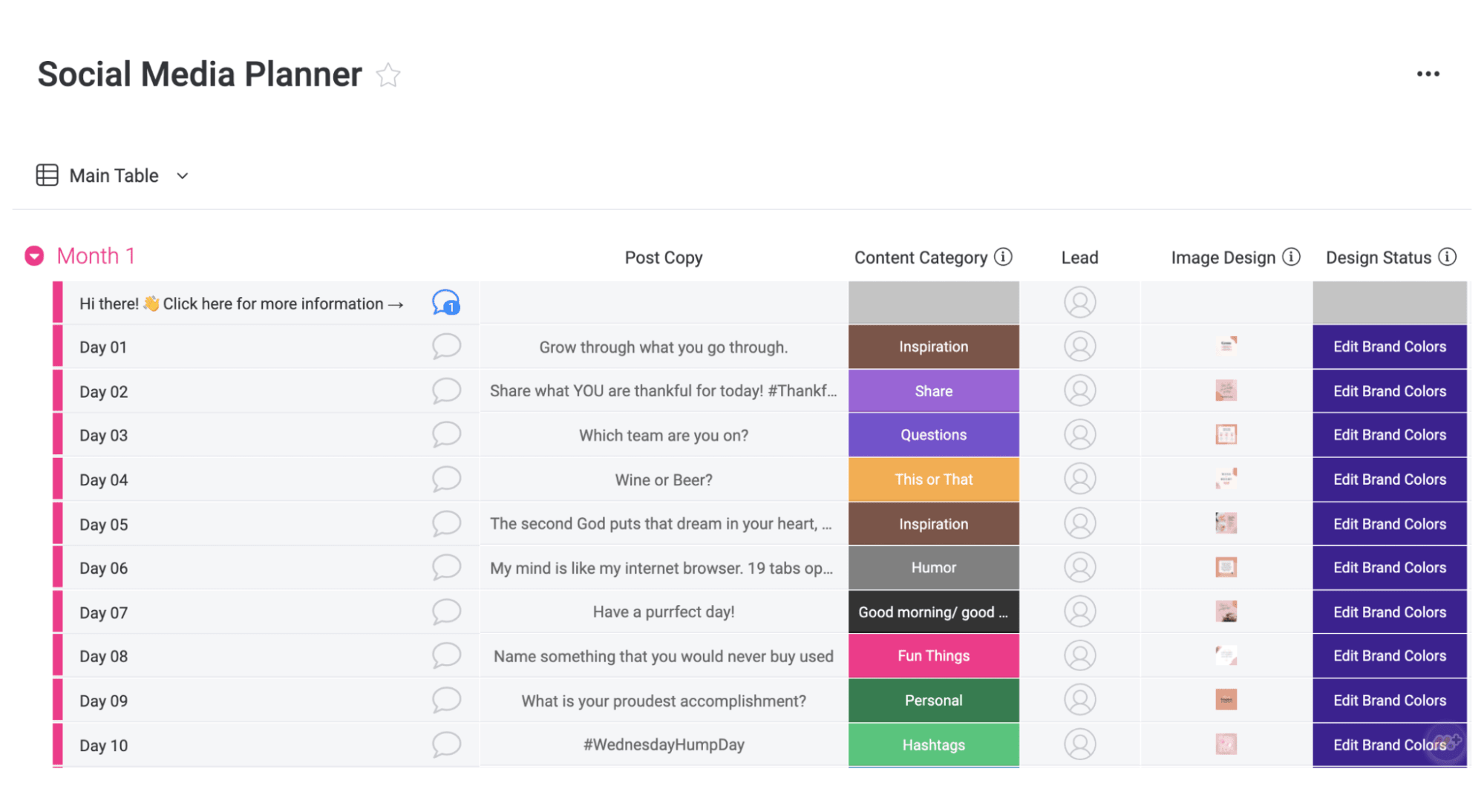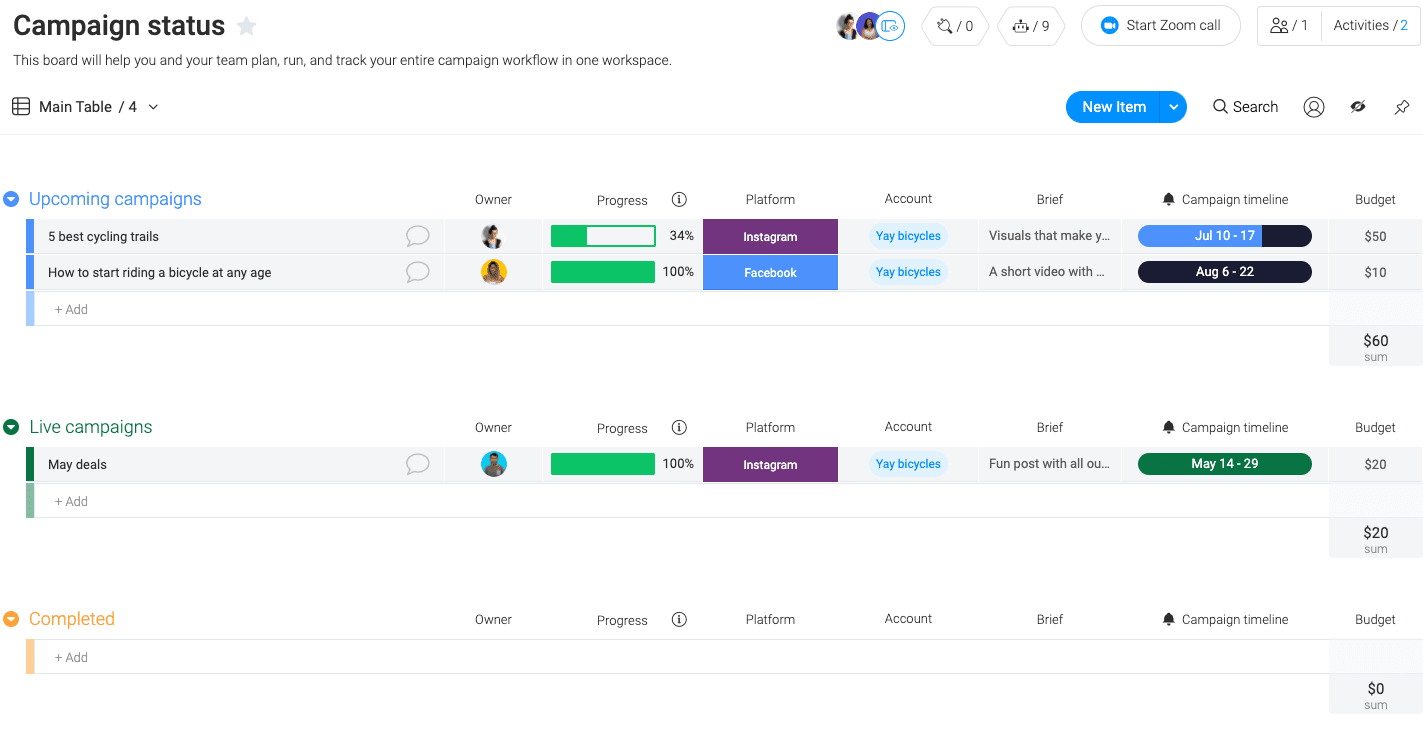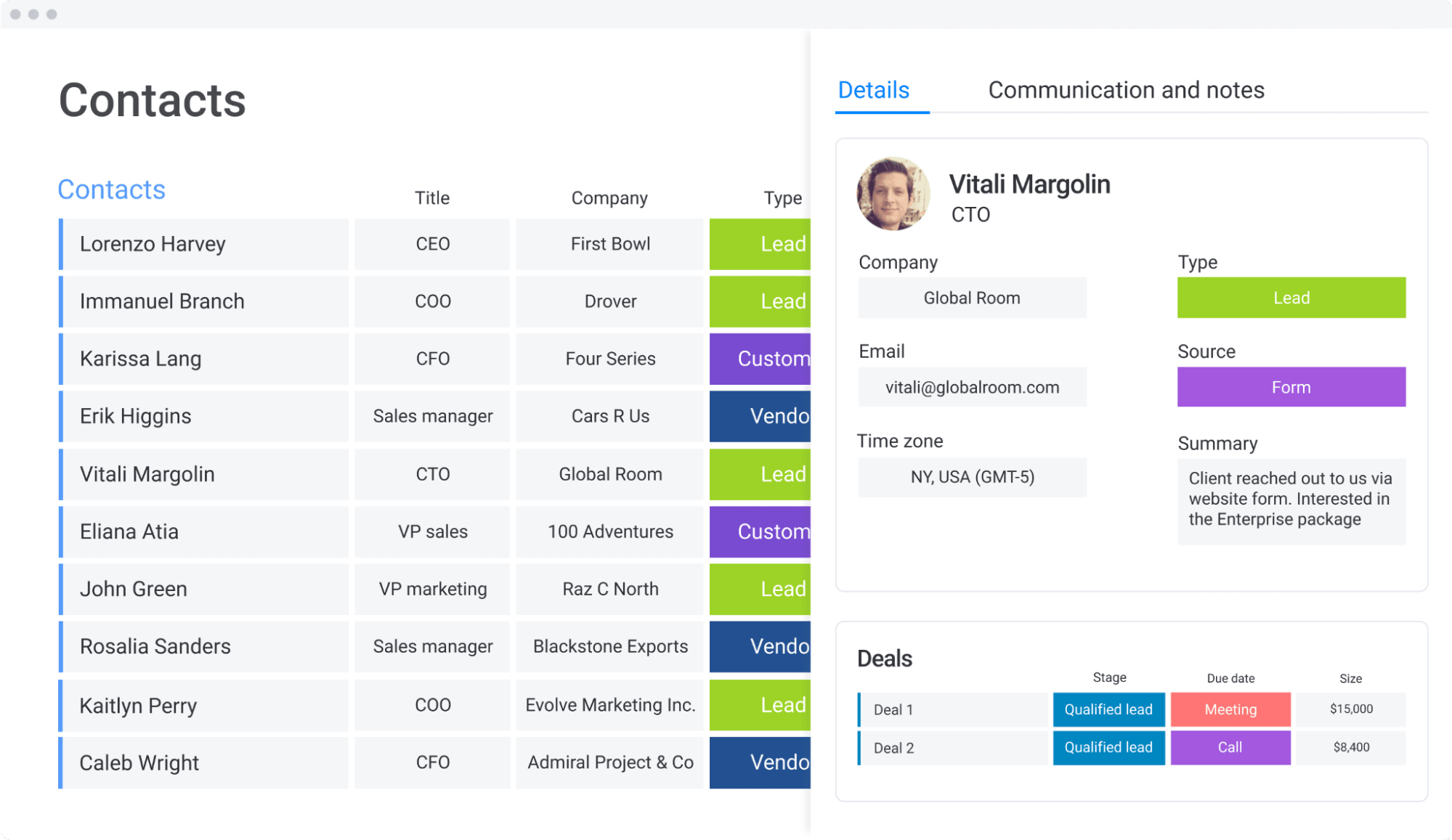Planning is an essential activity for any project, including marketing.
Without a proper plan in place, an otherwise successful campaign can turn into a chaotic mess. With the increasing volume of tasks teams deal with, you need a plan to coordinate your efforts and maximize resources.
Fortunately, with the help of modern project management platforms, planning your marketing activities isn’t that complicated.
Today, you’ll learn exactly what marketing planning is and how to modernize the process by tapping into the right marketing planning software.
What is marketing planning?
Marketing planning is the process of strategically coordinating your organization’s future marketing events to maximize results. It often involves the development of a strategic document that outlines relevant details about the plan, including:
- The core marketing goal
- Marketing research
- A description of each buyer persona
- Specific initiatives
- Team responsibilities
Why does marketing planning matter?
First, a well-defined plan helps you determine whether your marketing goal is actually feasible. Second, it helps you figure out how you’ll go from point A to point B in the most efficient way possible.
A recent survey showed that 15% of businesses think marketing is their biggest challenge. That’s a lot of businesses who know they need to do marketing better and want some help to get started.

Marketing planning helps you understand the current state of your business, market, and competitors and find potential opportunity gaps you can fill. It’ll also give you a roadmap of action to get better results.
Other benefits of strategic marketing planning include:
- Increasing accountability: inform your marketing team of the exact activities they’re responsible for.
- Minimizing risk: study potential threats and problems beforehand.
- Measuring your progress: compare your actual results with your baseline plan to measure performance.
- Making more informed decisions: get valuable insights from your market and make smarter decisions.
- Getting every team member on the same page: keep your marketing team aligned throughout the entire process.
The marketing planning process explained
Now that you understand the basics of marketing planning, the question becomes: how can you structure a strategic marketing plan the right way?
To develop an effective marketing plan, you must follow a strategic 5-step approach.
Let’s break it down:
1. Situation analysis
This step aims to explore the current situation of your business and spot potential opportunities and threats.
Some of the elements you should consider at this stage include:
- SWOT analysis: this framework helps you find your strengths, weaknesses, opportunities, and threats to understand your current situation.
- Customer profiles: detailed buyer personas to understand your target audience.
- Mission and vision: these 2 statements will help you make sure your activities are aligned with the core values of your business.
- Current strategies: state what you’re currently doing to achieve your goals and the results you’ve achieved so far.
2. External analysis
In this step, your goal is to develop a solid understanding of your customers and competitors.
Some of the elements you should consider at this stage include:
- Macro analysis: describe your market’s demographics and study the political, social, economic, and technological forces that influence that market.
- Meso analysis: define your distribution model and study your competition
- Porter’s 5 forces model: threat of new entrants, competitive rivalry, supplier power, buyer power, and threat of substitution.

3. Goal setting
Once you’ve done your initial analysis, it’s time to set clear goals. What are you trying to achieve with this particular campaign?
Some of the elements you should consider at this stage include:
- Key Performance Indicators (KPIs): the indicators you’ll use to measure the performance of your marketing activities.
- SMART goals: a section that describes specific, measurable, attainable, relevant, and time-based goals.
4. Marketing strategy development
Now that you have a clear marketing objective in place, let’s develop your strategy, as your core plan should be a subsidiary of that strategy.
Some of the elements you should consider at this stage include:
- Initiatives: the steps you’ll take to achieve the goals you outlined in the previous sections.
- Progression: a schedule that describes the order of events your team will implement.
- Responsibilities: a description of the workload and responsibilities of each team member.
- Team management: the process you’ll use to manage your team and measure progress.
5. Implementation plan
Finally, break down your implementation plan into smaller, actionable steps.
Some of the elements you should consider at this stage include:
- Communications: define clear communication channels you’ll use along the way.
- Feedback analysis: describe how you’ll analyze performance and how you’ll deal with potential problems and changes.
How to plan 6 different types of marketing campaigns with monday.com
Now that you understand what marketing planning is and why it matters, let’s explore how to implement the marketing planning process in 6 different types of campaigns.
We’ll cover how to streamline and automate your marketing planning process by tapping into some of our templates.
But first, let’s answer a major question.
What is monday.com?

monday.com is a powerful Work Operating System (Work OS) that helps teams of all sizes work more efficiently. That is, a platform where you can build custom digital workspaces to plan, organize, execute, and streamline any type of workflow.
From the start, you get access to multiple “building blocks” you can move around at will to design a platform that feels perfect for your team.
Now, let’s talk about how you can use some of our templates to improve your marketing planning process.
How to plan, organize, and coordinate your marketing projects with monday.com
At monday.com, we provide you with over 200 templates for different types of tasks. These templates are fully customizable, and you can install them with a single click.
Let’s break down some of our most popular templates based on their different functions.
Content marketing
With the increasing speed markets evolve with, your content production planning process shouldn’t be long-term based. Instead, we suggest you take an Agile approach and work in sprints (e.g., 2-week time blocks).
This way, you’ll be able to adapt to any market change much faster and optimize your workflows accordingly.

To do it, some of these templates might be helpful:
- Content calendar: plan and coordinate all your upcoming content with the help of a visual and interactive calendar.
- Blog planning: ideate and organize new content and track everything related to your blog planning process.
- Digital asset management: store relevant files and keep all your digital assets handy for every team member.
Social media marketing
Social media requires a deep understanding of the current trends in the industry, as well as the most relevant influencers. To get good results, you must approach social media strategically and develop a solid planning process.

Some of these templates can help you do it effectively:
- Social media planner: organize your social media publications by platform, publish date, status, and more.
- Creative team planner: manage your creative team, assign tasks, and measure the performance of your social media campaigns.
- Video production management: streamline your video production planning process with the help of an interactive template like our Production Calendar.
Paid media
Paid media campaigns can be extremely profitable but also dangerous if you don’t execute them well. Lack of planning can turn an otherwise successful campaign into a revenue leak.

Some of these templates won’t only improve your paid media planning but also help you measure performance and keep everything organized.
- Campaign planning: bring in all your copywriters, designers, and creatives to collaborate in a single place.
- A/B testing: plan your next A/B test campaign and keep everyone aligned with test results.
- Facebook Ads integration: integrate Facebook ads with monday.com and use this template to track your campaigns.
Product launches
Every product-focused business deals with a product launch at some point.
To get the most out of your product launches, make sure you have a clear understanding of your audience and the progression of your initiatives.

These templates can help you plan your next launch more efficiently:
- Marketing plan: plan your goals, marketing budget, team responsibilities, and everything related to your product launch.
- Product marketing launch: plan and manage each phase in the product launch process.
Lead generation
Lead generation is one of the most important processes of any business. Without a constant flow of new prospective clients coming into your pipeline, your organization won’t survive very long.
To design a successful lead generation campaign, you need to have solid customer profiles and a well-designed pipeline structure to manage each interaction.

The following templates can help you strengthen your lead generation planning process:
- Contact management: store and manage all your contacts into a single source of truth.
- Pipeline management: structure and oversee your pipeline and visualize how your deals are progressing.
- CRM: capture new leads, forecast revenue, get valuable insights, and manage your customer relationships with ease.
Ready to improve your marketing planning efforts?
Marketing planning comes down to understanding your processes and coordinating your efforts with a strategic approach.
Hopefully, the ideas we outlined today help you start on the right foot and get the most out of your marketing department.
And if you’re looking for a platform that helps you plan, organize, execute, and even automate any type of marketing campaign, then monday.com might be a good fit for you.
To decide for yourself, why don’t you try our fully customizable marketing plan template? It’ll make your job much easier.
